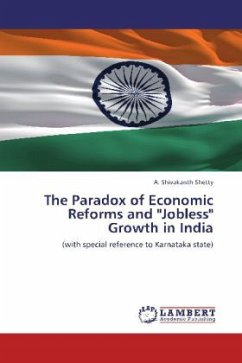One of the great failures of the Indian development strategy over the decades, along with the persistence of poverty and the slow rate of increase in human development indicators, has been inadequate employment generation. These critics argue that opening up the economy to more liberal external trade and foreign investment would not only generate a higher rate of output growth but also automatically create a restructuring of production which would mean a significant increase in labour-intensive production and therefore also substantial increases in employment. However, the evidences emerging from the 1990s and 2000s suggest that there has been no such radical and revolutionary improvement in the employment generation during the reform period.Therefore, the present study intends to probe and evaluate the success of reforms and liberalisation in promoting industrialisation and employment generation in India in general and Karnataka state in particular.
Bitte wählen Sie Ihr Anliegen aus.
Rechnungen
Retourenschein anfordern
Bestellstatus
Storno








